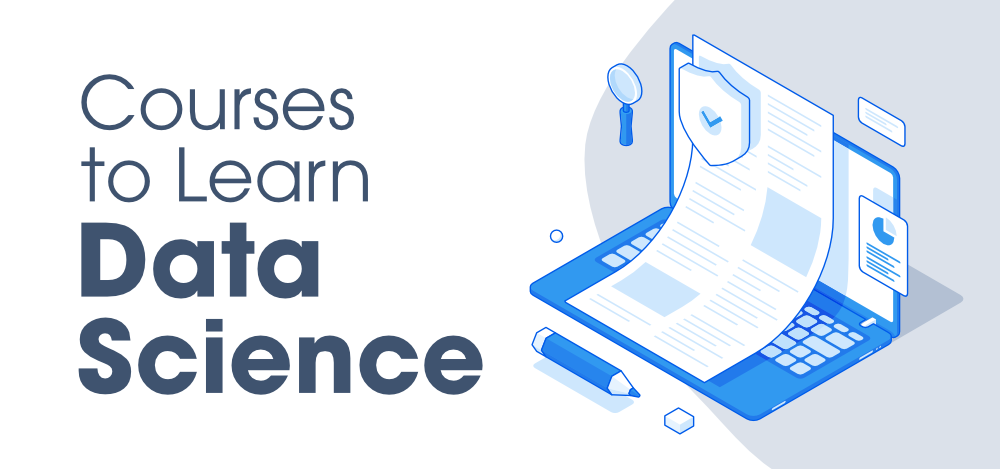
Why Learn Python for Data Analysis?
In today's data-driven world, the ability to analyze and interpret data is a highly sought-after skill. Python has emerged as the leading programming language for data analysis due to its versatility, extensive libraries, and a vibrant community. Learning Python for data analysis opens doors to a wide range of career opportunities in fields like finance, marketing, healthcare, and technology.
Python's strength lies in its powerful libraries specifically designed for data manipulation, analysis, and visualization. Libraries like NumPy, Pandas, Matplotlib, and Seaborn provide efficient tools for handling large datasets, performing statistical analysis, and creating insightful visualizations. Furthermore, Python's relatively easy-to-learn syntax makes it accessible to individuals with varying levels of programming experience.
Must-Have Python Libraries for Data Analysis
Before diving into specific courses, let's highlight some core Python libraries you'll encounter:
- NumPy: The foundation for numerical computing in Python. Provides support for arrays and matrices, along with a vast collection of mathematical functions.
- Pandas: Offers powerful data structures like DataFrames for data manipulation and analysis. Simplifies tasks like data cleaning, filtering, and aggregation.
- Matplotlib: A comprehensive library for creating static, interactive, and animated visualizations in Python.
- Seaborn: Built on top of Matplotlib, Seaborn provides a higher-level interface for creating visually appealing and informative statistical graphics.
- Scikit-learn: A powerful machine learning library that provides tools for classification, regression, clustering, and model selection.
Top Online Courses for Learning Python for Data Analysis
Here's a curated list of some of the best online courses that can help you master Python for data analysis, catering to different skill levels and learning preferences:
1. DataCamp: Data Scientist with Python Track
DataCamp offers a comprehensive "Data Scientist with Python" track that covers everything from the basics of Python programming to advanced data science techniques. This track is ideal for beginners who want a structured learning path and hands-on experience. It includes interactive coding exercises, real-world projects, and expert-led video tutorials.
Key Features:
- Interactive coding exercises
- Real-world projects
- Expert-led video tutorials
- Covers a wide range of topics, from Python basics to machine learning
- Subscription-based access
2. Coursera: Python for Everybody Specialization (University of Michigan)
This specialization offered by the University of Michigan on Coursera is a great starting point for individuals with no prior programming experience. It teaches the fundamentals of Python programming and then transitions into using Python for data analysis. The course focuses on practical application and includes hands-on projects.
Key Features:
- Beginner-friendly
- Focuses on practical application
- Includes hands-on projects
- Covers Python basics, data structures, and data analysis techniques
- Certificate upon completion
3. Udemy: Python for Data Science and Machine Learning Bootcamp
This Udemy bootcamp is a comprehensive course that covers Python programming, data analysis, machine learning, and deep learning. It's a fast-paced course that packs a lot of information into a relatively short amount of time. It's ideal for individuals who want to learn a broad range of data science skills.
Key Features:
- Comprehensive coverage of Python, data analysis, machine learning, and deep learning
- Fast-paced and intensive
- Includes hands-on projects and exercises
- One-time purchase access
4. edX: Analyzing Data with Python (Microsoft)
Offered by Microsoft on edX, this course focuses specifically on using Python for data analysis. It covers topics like data cleaning, data exploration, data visualization, and statistical analysis. The course is designed for individuals who have some basic programming experience and want to learn how to use Python for data analysis.
Key Features:
- Focuses specifically on Python for data analysis
- Covers data cleaning, exploration, visualization, and statistical analysis
- Designed for individuals with some programming experience
- Certificate upon completion
5. Codecademy: Learn Python 3
While not solely focused on data analysis, Codecademy's "Learn Python 3" course provides a solid foundation in Python programming. This is a great option for absolute beginners who want to learn the fundamentals of Python before diving into data analysis libraries. It uses an interactive, hands-on approach to learning.
Key Features:
- Interactive and hands-on learning
- Covers Python fundamentals
- Beginner-friendly
- Subscription-based access
6. Google Data Analytics Professional Certificate (Coursera)
This certificate program on Coursera offers a broader introduction to data analytics, with a significant portion dedicated to Python. It's a good choice for those interested in the entire data analytics pipeline, from data collection to presentation, and want to learn Python as a key tool within that context.
Key Features:
- Comprehensive introduction to data analytics
- Includes a significant portion dedicated to Python
- Covers the entire data analytics pipeline
- Suitable for those interested in a broader understanding of data analytics
- Certificate upon completion
Choosing the Right Course for You
When selecting an online course, consider the following factors:
- Your current skill level: Are you a complete beginner, or do you have some programming experience?
- Your learning style: Do you prefer interactive exercises, video lectures, or project-based learning?
- Your budget: Some courses are free, while others require a subscription or a one-time purchase.
- The course curriculum: Does the course cover the topics you're most interested in learning?
- The instructor's experience: Is the instructor an expert in the field of data analysis?
Tips for Success in Your Python Data Analysis Journey
Learning Python for data analysis can be challenging, but it's also incredibly rewarding. Here are a few tips to help you succeed:
- Practice regularly: The more you practice, the better you'll become.
- Work on projects: Applying your knowledge to real-world projects is a great way to learn.
- Join a community: Connect with other learners and experts to ask questions and share your knowledge.
- Stay up-to-date: The field of data analysis is constantly evolving, so it's important to stay up-to-date on the latest trends and technologies.
- Don't be afraid to ask for help: If you're stuck, don't hesitate to ask for help from your instructor or other learners.
